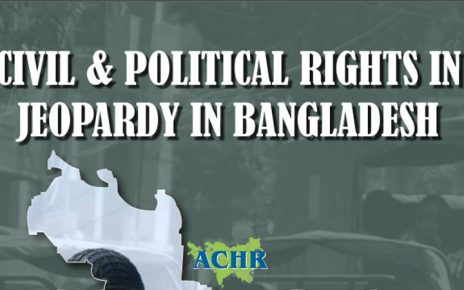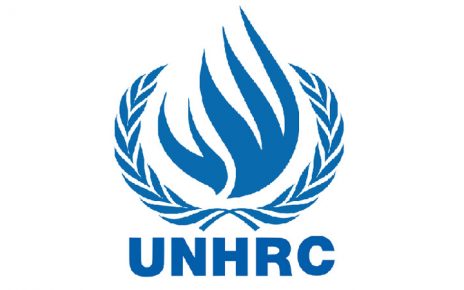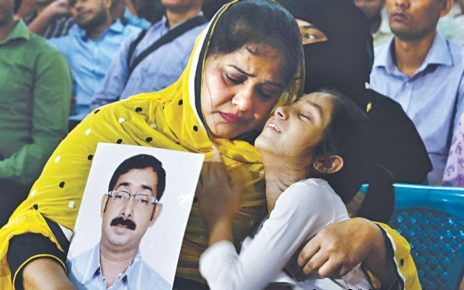-UN and Bangladesh making them easy prey to traffickers and terrorists-
New Delhi: Asian Centre for Human Rights (ACHR) in a report (http://www.achrweb.org/Review/2015/244-15.html) released today stated that the United Nations and the Government of Bangladesh have been deliberately making the Rohingyas easy prey to the traffickers and terrorists, and over 200,000 undocumented Rohingyas in Bangladesh are essentially waiting to be trafficked to the South East Asian countries.
“The United Nations High Commissioner for Refugees (UNHCR) states that at present it provides support to more than 32,000 registered refugees in two official camps at Nayapara and Kutupalong in the district of Cox’s Bazar but it (UNHCR) is concerned about the protection of some 200,000 to 500,000 undocumented Myanmar Rohingya in Bangladesh. These undocumented refugees are the most vulnerable to traffickers and terrorists, and indeed over 200,000 Rohingyas in Bangladesh are waiting to be trafficked to South East Asia should they be able to organise finances. Though both the UNHCR and the Government of Bangladesh are aware of these facts, both have deliberately failed to register the documented Rohingya refugees, thereby not only facilitating trafficking but creating security concerns because of the involvement of the Rohingya Solidarity Organisation (RSO) in terror activities”- stated Mr Suhas Chakma of the Asian Centre for Human Rights.
Asian Centre for Human Rights further stated that fleeing Rohingyas have turned into human rights violators on indigenous Jumma peoples of the Chittagong Hill Tracts (CHTs) of Bangladesh. Over 15,000 families of Rohingya Muslim refugees have been settled Naikhyongchari, Ruma, Lama, Alikadam and Sadar area of Bandarban district of the CHTs by the Government of Bangladesh with the aim to reduce indigenous Jumma peoples, mainly Buddhists, into minority in their own lands and to provide support and solidarity to the Rohingyas in neighboring Arakan province in Myanmar. They have been issued Permanent Resident Certificates and included in the local voter lists and further provided all development and employment facilities by the Government of Bangladesh.
“Many of these Rohingya refugees have been involved in the attacks on the Buddhist minorities in Bangladesh, in particular, in and around the CHTs. Mr Salamat Ullah, who was arrested by the Bangladesh police in November 2014 following the arrest of Myanmarese national and RSO member Mr Khalid Mohammad by the National Investigation Agency of India in connection with the Burdwan blast in West Bengal on 2 October 2014, led the attacks on Buddhist minorities at Ramu on 29-30 September 2012.” – further stated Mr Chakma.
“It is indeed tragic that those who were stranded in the sea without food or water are better off among the Rohingyas in Bangladesh as they were able to pay traffickers while majority of the Rohingyas without any support or protection from the UN and the Government of Bangladesh struggle for two square meals a day unless they have been able to grab the lands of indigenous peoples in the CHTs.” – further stated Mr Chakma.
ACHR highlighted the hypocrisy of the international community which has done very little, either to provide shelter to the Rohingyas or share the burden of their up-keep in the camps, other than sponsoring resolutions at the UN.
ACHR stated that the Rohingya crisis cannot be resolved by dumping the Rohingyas into the Chittagong Hill Tracts of Bangladesh, South East Asian countries or the Arab world and Myanmar must be pressed to resolve the issue consistent with international human rights standards.
ACHR recommended proper registration of the undocumented Rohingyas to prevent from becoming easy preys of the traffickers and terrorists, and withdrawal of the Rohingyas settled in the Chittagong Hill Tracts to ensure their repatriation to Myanmar. [Ends]



